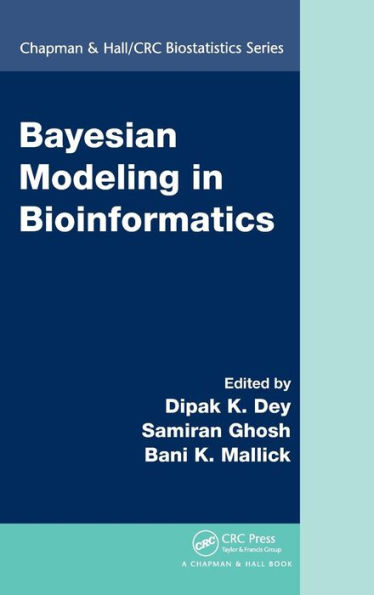The book explores Bayesian techniques and models for detecting differentially expressed genes, classifying differential gene expression, and identifying biomarkers. It develops novel Bayesian nonparametric approaches for bioinformatics problems, measurement error and survival models for cDNA microarrays, a Bayesian hidden Markov modeling approach for CGH array data, Bayesian approaches for phylogenic analysis, sparsity priors for protein-protein interaction predictions, and Bayesian networks for gene expression data. The text also describes applications of mode-oriented stochastic search algorithms, in vitro to in vivo factor profiling, proportional hazards regression using Bayesian kernel machines, and QTL mapping.
Focusing on design, statistical inference, and data analysis from a Bayesian perspective, this volume explores statistical challenges in bioinformatics data analysis and modeling and offers solutions to these problems. It encourages readers to draw on the evolving technologies and promote statistical development in this area of bioinformatics.
The book explores Bayesian techniques and models for detecting differentially expressed genes, classifying differential gene expression, and identifying biomarkers. It develops novel Bayesian nonparametric approaches for bioinformatics problems, measurement error and survival models for cDNA microarrays, a Bayesian hidden Markov modeling approach for CGH array data, Bayesian approaches for phylogenic analysis, sparsity priors for protein-protein interaction predictions, and Bayesian networks for gene expression data. The text also describes applications of mode-oriented stochastic search algorithms, in vitro to in vivo factor profiling, proportional hazards regression using Bayesian kernel machines, and QTL mapping.
Focusing on design, statistical inference, and data analysis from a Bayesian perspective, this volume explores statistical challenges in bioinformatics data analysis and modeling and offers solutions to these problems. It encourages readers to draw on the evolving technologies and promote statistical development in this area of bioinformatics.

Bayesian Modeling in Bioinformatics
466
Bayesian Modeling in Bioinformatics
466Related collections and offers

Product Details
| ISBN-13: | 9781420070170 |
|---|---|
| Publisher: | Taylor & Francis |
| Publication date: | 09/03/2010 |
| Series: | Chapman & Hall/CRC Biostatistics Series , #34 |
| Pages: | 466 |
| Product dimensions: | 6.30(w) x 9.30(h) x 1.10(d) |
